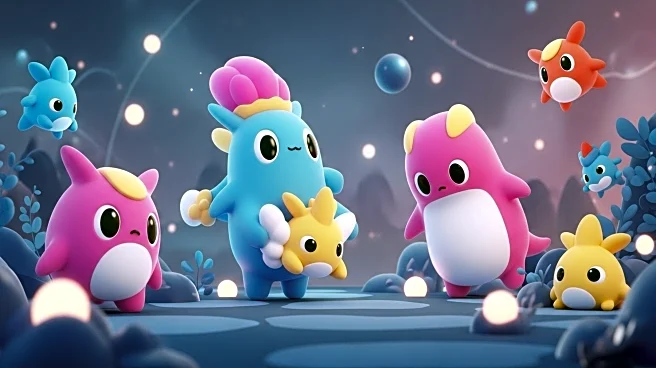What's Happening?
The Department of Homeland Security (DHS) posted a video on social media using Pokémon-themed content to promote immigration enforcement, sparking controversy. The video, which went viral, featured clips from the Pokémon anime intro alongside footage of border patrol agents, ending with Pokémon cards of convicted criminals. Reactions were mixed, with some praising the creativity and others condemning it as inappropriate. Nintendo, known for aggressively protecting its intellectual property, faces a decision on how to respond. Options include doing nothing, filing a copyright complaint, or suing the government for infringement. The situation poses a challenge for Nintendo, balancing brand protection with potential backlash.
Why It's Important?
The DHS's use of Pokémon content in its post raises significant questions about intellectual property rights and the ethical implications of using a children's franchise for political messaging. Nintendo's response could impact its brand reputation and customer relations, especially amid ongoing debates over immigration policies. The viral nature of the post highlights the power of social media in shaping public discourse and the potential consequences for companies involved. Nintendo's decision will be closely watched by stakeholders, including fans, legal experts, and advocacy groups, as it navigates the complexities of intellectual property enforcement and public perception.
What's Next?
Nintendo must decide whether to take legal action or pursue other measures to address the DHS's use of its content. Filing a copyright complaint with social media platforms may offer a balanced approach, potentially leading to the post's removal without escalating to litigation. The company's decision will likely consider the broader implications for its brand and customer base, as well as the potential for further similar content from DHS. As the situation unfolds, Nintendo's actions could set a precedent for how companies handle unauthorized use of their intellectual property in political contexts.
Beyond the Headlines
The controversy underscores the intersection of politics and popular culture, highlighting the challenges companies face in protecting their intellectual property while navigating public sentiment. The use of Pokémon in a political context raises ethical questions about the appropriateness of leveraging entertainment franchises for government messaging. Nintendo's response will reflect broader industry trends in intellectual property enforcement and the role of social media in shaping brand narratives. The situation also illustrates the complexities of balancing legal rights with public relations considerations in a highly polarized environment.











